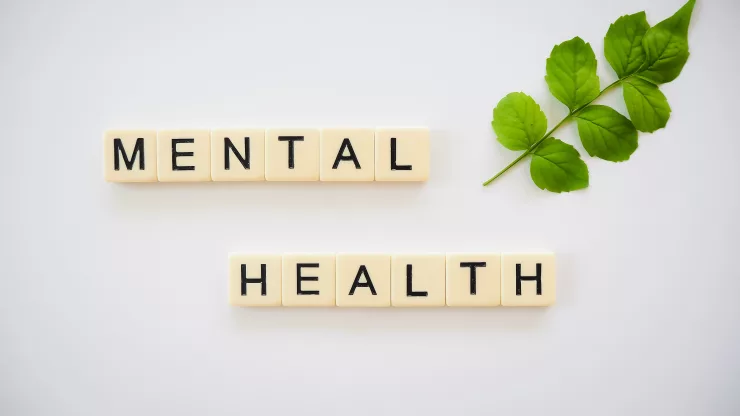Anxiety is a common experience that can make us feel overwhelmed and stressed.
It can be difficult to navigate, but there are strategies and techniques that can help us manage our anxiety and improve our overall well-being.
In this article, we’ll explore the causes and symptoms of anxiety, as well as coping strategies and lifestyle changes that can help us conquer anxiety and elevate our well-being.
Jump to Section
Understanding Anxiety: What it is and Why Does it Affect Us?
Anxiety is a normal human emotion that we experience when we feel threatened or overwhelmed.
It’s our body’s natural response to stress, and it can motivate us to take action and protect ourselves.
However, when anxiety becomes persistent and interferes with our daily life, it can become a disorder.
Defining Anxiety: How Medical Professionals Describe It
Anxiety is a common mental health condition that affects millions of people worldwide.
Medical professionals define anxiety as a feeling of fear, apprehension, or nervousness that’s out of proportion to the situation at hand.
It’s characterized by excessive worry, irrational fears, and physical symptoms such as heart palpitations, sweating, and trembling.
Types of Anxiety: Generalized, Social, Panic, and More
There are several different types of anxiety disorders, each with its own set of symptoms and triggers. Generalized anxiety disorder (GAD) is one of the most common types of anxiety, characterized by persistent worry and fear about everyday situations. Social anxiety disorder (SAD) is another common type of anxiety, characterized by fear and avoidance of social situations. Panic disorder is characterized by sudden and unexpected panic attacks, while phobias are intense fears of specific objects or situations.
A Deep Dive into Anxiety: How it Affects Our Nervous System
Anxiety affects our nervous system, triggering the release of stress hormones such as cortisol and adrenaline. This can lead to physical symptoms such as increased heart rate, rapid breathing, and sweating.
In addition, anxiety can also affect our thoughts and behaviors, leading to avoidance, nervous habits, and other symptoms.
Understanding the Root Causes of Anxiety
Anxiety can be caused by a variety of factors, including genetics, brain chemistry, and life experiences. Trauma, stress, and major life changes can also trigger anxiety symptoms.
Identifying the root causes of anxiety can help us develop effective coping strategies and treatment plans.
Identifying the Signs and Symptoms of Anxiety
Recognizing the signs and symptoms of anxiety is an important first step in managing this condition.
The Physical Symptoms of Anxiety: Heart Palpitations, Sweating, and More
Physical symptoms of anxiety can include heart palpitations, sweating, shaking, and muscle tension. Other symptoms can include nausea, dizziness, and shortness of breath.
The Behavioral Symptoms of Anxiety: Avoidance, Nervous Habits, and More
Behavioral symptoms of anxiety can include avoidance of certain situations, nervous habits such as fidgeting or tapping, and compulsive behaviors such as checking locks or washing hands.
The Psychological Symptoms of Anxiety: Racing Thoughts, Irrational Fears, and More
Psychological symptoms of anxiety can include racing thoughts, irrational fears, and constant worry. Other symptoms can include difficulty concentrating, irritability, and sleep disturbances.
Identifying the Triggers that Cause Anxiety
Identifying the triggers that cause anxiety can help us develop effective coping strategies and treatment plans. Triggers can include stressful situations, major life changes, and traumatic events.
| Trigger | Symptoms |
|---|---|
| Work-related stress | Nervous habits, racing thoughts, difficulty concentrating |
| Social situations | Increased heart rate, sweating, avoidance behaviors |
| Traumatic events | Flashbacks, nightmares, heightened anxiety |
Coping Strategies for Anxiety Management
There are several coping strategies that can help us manage our anxiety and reduce symptoms.
The Importance of Self-Care: Taking Care of Your Physical and Emotional Needs
Self-care is an important part of managing anxiety. This can include exercise, eating a healthy diet, getting enough rest, and engaging in activities that bring us joy and relaxation.
Mindfulness-Based Stress Reduction Techniques: How They Can Help
Mindfulness-based stress reduction (MBSR) techniques can help us manage our anxiety by promoting awareness of the present moment and reducing rumination and worry. Techniques can include meditation, deep breathing, and yoga.
Cognitive Behavioral Therapy: A Proven Method for Anxiety Treatment
Cognitive behavioral therapy (CBT) is a proven method for anxiety treatment. This therapy focuses on changing negative thought patterns and behaviors that contribute to anxiety.
Medications for Anxiety Management: What You Need to Know
Medications can be an effective tool for managing anxiety. These can include antidepressants, anti-anxiety medications, and beta-blockers.
It’s important to work with a healthcare professional to determine which medication is right for you.
Lifestyle Changes to Improve Overall Well-Being
Making lifestyle changes can help improve overall well-being and reduce symptoms of anxiety.
The Role of Nutrition in Anxiety Management
Nutrition can play a role in managing anxiety. Foods high in Omega-3 fatty acids, such as fish and nuts, can help reduce inflammation and promote brain health.
The Importance of Exercise for Reducing Anxiety Symptoms
Exercise can be an effective tool for reducing anxiety symptoms. Physical activity can help reduce stress, increase endorphins, and improve overall mood.
The Connection Between Sleep and Anxiety
Getting enough sleep is essential for managing anxiety. Sleep deprivation can exacerbate anxiety symptoms and make it harder to cope with stress.
Identifying and Reducing Stressors in Your Life
Identifying and reducing stressors in your life can help reduce symptoms of anxiety. This can include setting boundaries, practicing time management, and engaging in stress-reducing activities.
Seeking Additional Support for Anxiety Management
Additional support can be helpful for managing anxiety.
The Benefits of Group Therapy and Support Groups
Group therapy and support groups can provide a sense of community and support for those struggling with anxiety. This can help reduce feelings of isolation and promote healing.
Finding the Right Therapist: How to Get Started
Finding the right therapist can be a helpful step in managing anxiety. It’s important to find a therapist that is a good fit, and to work with them to develop a treatment plan.
Exploring Alternative Therapies: Acupuncture, Massage, and More
Alternative therapies such as acupuncture and massage can be helpful tools for managing anxiety. These therapies can promote relaxation and reduce stress.
When to Consider Medication: Talking to Your Doctor About Your Options
Medication can be a helpful tool for managing anxiety. It’s important to work with a healthcare professional to determine when medication may be necessary.
Conclusion: Managing Anxiety and Elevating Your Well-Being
Managing anxiety can be a challenging process, but with the right strategies and support, it’s possible to conquer anxiety and improve overall well-being.
Reflecting on

With a deep passion for personal development, Ben has dedicated his career to inspiring and guiding others on their journey towards self-improvement.
His love for learning and sharing knowledge about personal growth strategies, mindfulness, and goal-setting principles has led him to create My Virtual Life Coach.
Contact Ben at [email protected] for assistance.




